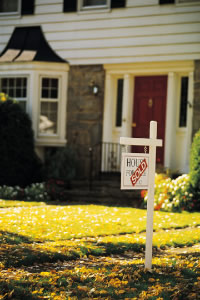Money Basics
Buying a House
How much does that house cost?
There are different costs and factors associated with buying a house, including earnest money, a down payment, mortgage, and closing costs. Be aware of the following:

- In some states, when you sign a contract to buy a house, you will need to pay a deposit, called earnest money (usually between 1 and 3 percent of the purchase price). Putting down earnest money shows that you are serious about buying the house. The title company—the business that will handle the paperwork for the sale—usually holds the money until closing, when the papers are signed to buy the house. Other states wait until the closing before the transfer of funds occurs.
- When you are ready to buy a house, you will need a down payment (3 to 20 percent of the sale price). On a $130,000 house, that's $3,900 to $26,000. If you've planned for buying a house, you may already have a good idea of how much you can put down. If not, take time to figure out how much of a down payment you can afford.
- For the rest of the cost of a house, you will probably need a special type of loan called a mortgage. The higher the down payment, the higher the loan you can get from a bank. For a given house price, the more you put down, the easier it is to qualify for the loan as well. If you put 20 percent or more down on a house, you also won't have to purchase private mortgage insurance. This protects your lender against the possibility of you defaulting on your mortgage.
- You will also have to pay closing costs—miscellaneous fees charged by various people involved with the home sale, such as your lender for processing the loan, the title company for handling the paperwork, a surveyor, and local government offices for recording the deed. Because the amount varies, your lender can give you an estimate of closing costs on a particular house. (If the costs are not rolled into the mortgage, you will have to pay them in cash at the time of closing.)
- Another factor is the amount of points you are willing to pay. A point is 1 percent of your mortgage loan amount. Points are usually paid for upfront. If you can—and are willing to—pay points, it will bring down your interest rate and potentially your closing costs.
- Check the current mortgage rates for your area. They are usually listed in the real estate section of your local newspaper.






